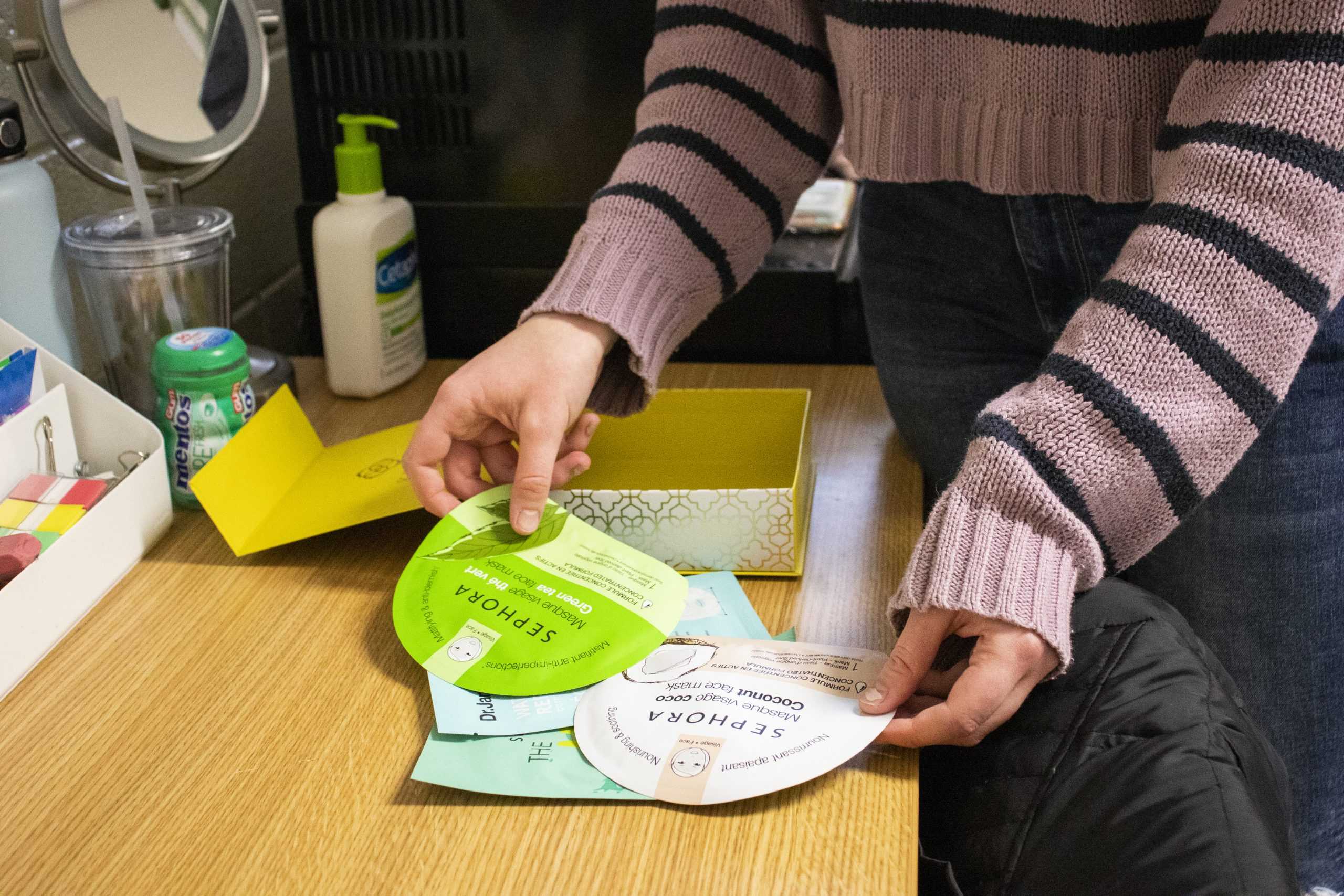Face masks have been around since the 19th century and have been growing more popular since.
In Ancient Egypt 6,000 years ago, creating face masks made up of honey and milk was incorporated into one’s beauty routine in order to combat wrinkles, and moisturize the skin. Since then, the rise in the use of face masks has increased exponentially.
However, according to Cecilia Cianci ’20, not all face masks are effective.
Cianci, who works for the popular television retail company QVC, has learned a lot about skin care since starting there in May of last year.
“I’m not saying expensive is better, but I wouldn’t necessarily trust the [products] that are three or four bucks,” Cianci said. “I don’t know what I’m putting on my face.”
Korean Beauty, also known as “K-Beauty,” has had a huge impact on not only the beauty culture in America, but the skincare industry as well.
Focused on obtaining youthful, glowing skin, K-Beauty has become a leading contender in sales around the world. K-Beauty offers no shortages of face masks that promise to give the user an abundance of different skin benefits.
Chinatown, a neighborhood in Philadelphia that has Chinese, Thai, Vietnamese and Korean shops and restaurants, has many skincare shops that offer face masks and K-Beauty products. Linda Xu, who has been working at Ga-In BeautyZone, a Korean beauty store in Chinatown, for the last six years, said face masks are most effective depending on the person’s skin care routine and skin type.
“If you use a mask it depends on the customer,” Xu said. “If you have a full-time routine of skincare, then you usually will not need a mask that much. You will already have hydrated skin.”
Cianci said starting new masks and skincare can be intimidating at first for the user, but consistency is key.
“You’ll see stuff on Instagram where someone shows a product that worked for them overnight that’s not true,” Cianci said.“It typically takes a month for your face to adjust to something. So when you’re not seeing immediate results that can be intimidating.”
With a plethora of products to choose from, knowing where to start and how much to pay can be hard to figure out.
Facemasks can range anywhere from $1.99, such as Que Bella masks found at Target, to over $250, such as La Mer’s Lifting and Firming Mask.
Elaine Chan, an employee at Dia Boutique in Chinatown, said most customers that come in for face masks do not want to spend over $50, but she does appreciate the quality of a high end product.
“It’s more firming and moisturizing for me,” Chan said. “Exactly what they tell you, it does.”
But, according to Cianci, just because a product is expensive, does not guarantee it will work.
Cianci said it is crucial to read the ingredients that are in the products you use. If there are a lot of unrecognizable additives in the product, then you probably should not be using it.
Xu added that maintaining a consistent skincare routine and using face masks will help to prevent breakouts.
“Try to use skincare, because it does really help,” Xu said. “I recommend skincare for everybody.”














































